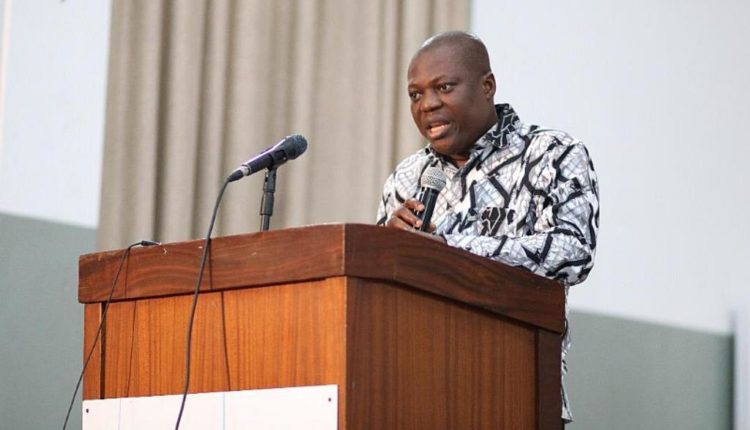John Gartchie Gatsi, Professor of Finance at the University of Cape Coast (UCC), has stated that Ghana has a myriad of problems that plague its export sector, the manufacturing sector and even the import sector.
According to him, this is as a result of the failure of successive governments to adequately put forward a policy framework that support local production of goods rather than allowing the country becomes a net importer of staple foods and other commonly imported products.
Prof. Gatsi explained that the rising cost of imported commodities in the country cannot solely be blamed on the reversal of the benchmark values.
“It is not merely about benchmark, we have myriads of problems affecting the export sector, the manufacturing sector and even the things that we import into the country. I think what is valuable for a country is to import what we call intermediate goods so that it will go through the value addition process, create jobs, develop the framework for revenue generation for the country.
“That is what we should be doing but over time, the number of basic commodities that we can produce in this country has been exchanged for imports from other countries and the number keeps increasing. If you look at the statistics that is coming from the statistical service, it also shows that most of our staples, we are now becoming net importers of our staples” he said.
He emphasized that “this is the area that we need to develop policy to address” because the current situation is “not about one single issue, it’s a myriad of issues”.
Addressing import dependency problem
As part of possible solutions to address Ghana’s import dependency problem and its resultant exchange rate and inflation problems, Professor John Gatsi called on government to formulate policies that target products that can be efficiently produced in Ghana to vamp up production while discouraging imports.
Speaking on PM Express, he suggested that the government should begin targeting what can easily be produced in Ghana before advancing to other items.
“Now, if you take exchange rate for example and inflation, they’re related. Now, if you’re importing all manner of things, the simplest approach is to target those items that you know every basic school child knows that you have efficiency in producing. You target them, begin to increase their production, add value, that is what you’re supposed to do.
“But as we speak, it is not very clear whether we appreciate the disaggregation of statistical service data for us to see to know that these are the areas of problem and begin to target them and put in place the policy. So, I believe our policies should be targeting the problems we have and I believe with time, we’ll be able to resolve [them]” he added.
Ghana’s economy is facing difficulties as inflation, exchange rate depreciation and accumulation of debt continue to impact economic agents. Inflation rate currently stands at 37.2% as of the end of September 2022.
More recently, a Bloomberg report revealed that the Ghana cedi is the world’s worst-performing currency this year, having depreciated by more than 45%, the most among 148 currencies tracked by Bloomberg.
The World Bank also noted in a recent report that Ghana’s mounting debt stock and related financing needs are cause for concern with public debt-to-GDP consistently in excess of 70 percent since 2020.


Comments are closed.